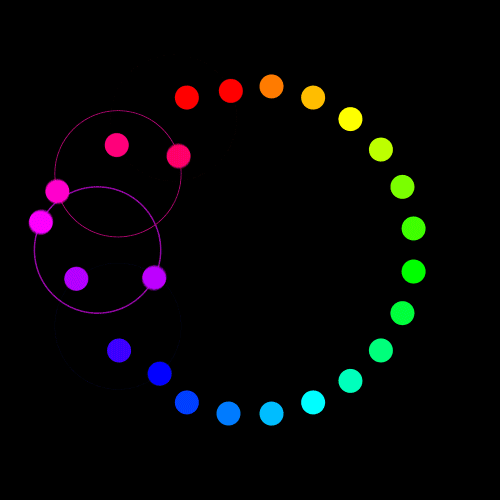
Mathematics all around
副标题:无
分类号:
ISBN:9787111264910
微信扫一扫,移动浏览光盘
简介
Thomas L·Pirnot编著的Mathematics All Around一书是为从事社会科学、教育学、商业艺术和其他非理工类专业的学生而写的教学教科书。本书可以使从事这些专业的学生理解并欣赏到数学在各个领域的许多精彩应用。.
本书共14章,内容包括集合论、数理逻辑、图论、数论、统计、概率、代数、几何等。本书以数学的应用作为动机,每一章的开始提出实际问题,然后发展必要的数学工具,再解决这些文际问题,在应用中进一步加强对数学的理解。因此提出问题和解决问题占本书很大篇幅、众多应用问题中有些联系日常生活:如信用卡购物问题,分期付款与抵押贷款问题,年利率的汁算,运动队成绩的评价,彩票获奖的几率,股票市场中的决策问题,疾病的传播问题,帘位的公平分配问题,唱片销售的回归模型等;有些是著名的数学问题:如四色问题,TSP问题(Traveling Salesman Problem);也有些是数学在高新技术中的应用问题:如模糊逻辑用于空调系统,矩阵用于医学计算机成像、图形加速和计算机图形学,分形用于人体中血管、气管的研究,用于创作逼真的自然景观。总之它们使本书变得越味横生。
目录
出版说明.
序
1 set theory: using mathematics to classify objects 1
1.1 problem solving 2
1.2 estimation 16
1.3 the language of sets 23
1.4 comparing sets 30
1.5 set operations 38
1.6 survey problems 50
chapter summary 58
chapter test 61
of further interest: infinite sets 63
2 logic: the study of what'strue or false or somewhere in between 68
2.1 inductive and deductive reasoning 69
2.2 statements, connectives, and quantifiers 78
2.3 truth tables 88
2.4 the conditional and biconditional 100
2.5 verifying arguments 110
2.6 using euler diagrams to verify syllogisms 119
chapter summary 127
.chapter test 129
of further interest: fuzzy logic 132
3 graph theory: the mathematics of relationships 140
3.1 graphs, puzzles, and map coloring 141
3.2 the traveling salesperson problem 159
3.3 directed graphs 171
chapter summary 180
chapter test 182
of further interest: scheduling projects using pert 184
4 numeration systems: does it matter how we name numbers? 194
4.1 the evolution of numeration systems 195
4.2 place value systems 206
4.3 calculating in other bases 217
chapter summary 230
chapter test 232
of further interest: modular systems 233
5 number theory and the real number ystem: understanding the numbers all around us 244
5.1 number theory 245
5.2 the integers 257
5.3 the rational numbers 266
5.4 the real number system 280
5.5 exponents and scientific notation 292
chapter summary 303
chapter test 306
of further interest: sequences 307
6 algebraic models: how do we approximate reality? 319
6.1 linear equations 320
6.2 modeling with linear equations 333
6.3 modeling with quadratic equations 342
6.4 exponential equations and growth 351
6.5 proportions and variation 363
chapter summary 371
chapter test 374
of further interest: dynamical systems 376
7 modeling with systems of linear equations and inequalities:what's the best way to do it? 384
7.1 systems of linear equations 385
7.2 systems of linear inequalities 399
chapter summary 409
chapter test 410
of further interest: linear programming 411
8 geometry: ancient and modern mathematics embrace.. 420
8.1 lines, angles, and circles 421
8.2 polygons 431
8.3 perimeter and area 442
8.4 volume and surface area 455
8.5 the metric system and dimensional analysis 464
8.6 geometric symmetry and tessellations 476
chapter summary 491
chapter test 495
qf further interest: fractals 497
9 apportionment: how do we measure fairness? 5o7
9.1 understanding apportionment 508
9.2 the huntington-hill apportionment principle 519
9.3 applications of the apportionment principle 526
9.4 other paradoxes and apportionment methods 535
chapter summary 551
chapter test 554
of further interest: fair division 556
10 voting: using mathematics to make choices 566
10.1 voting methods 567
10.2 defects in voting methods 579
10.3 weighted voting systems 593
chapter summary 602
chapter test 604
of further interest: the shaptey-shubik index 606
11 consumer mathematics: the mathematics of everyday life 614
11.1 percent 615
11.2 interest 623
11.3 consumer loans 637
11.4 annuities 645
11.5 amortization 654
chapter summary 665
chapter test 668
of further interest-the annual percentage rate 670
12 counting: just now many are there? 677
12.1 introduction to counting methods 678
12.2 the fundamental counting principle 687
12.3 permutations and combinations 695
chapter summary 709
chapter test 710
of further interest: counting and gambling 71 l
13 probability: what are the chances? 716
13.1 the basics of probability theory 717
13.2 complements and unions of events 735
13.3 conditional probability and intersections of events 743
13.4 expected value 757
chapter summary 765
chapter test 767
of further interest: binomial experiments 768
14 descriptive statistics:what a data set tells us 775
14.1 organizing and visualizing data 776
14.2 measures of central tendency 791
14.3 measures of dispersion 806
14.4 the normal distribution 819
chapter summary 834
chapter test 836
of further interest: linear correlation 838
教辅材料申请表...
序
1 set theory: using mathematics to classify objects 1
1.1 problem solving 2
1.2 estimation 16
1.3 the language of sets 23
1.4 comparing sets 30
1.5 set operations 38
1.6 survey problems 50
chapter summary 58
chapter test 61
of further interest: infinite sets 63
2 logic: the study of what'strue or false or somewhere in between 68
2.1 inductive and deductive reasoning 69
2.2 statements, connectives, and quantifiers 78
2.3 truth tables 88
2.4 the conditional and biconditional 100
2.5 verifying arguments 110
2.6 using euler diagrams to verify syllogisms 119
chapter summary 127
.chapter test 129
of further interest: fuzzy logic 132
3 graph theory: the mathematics of relationships 140
3.1 graphs, puzzles, and map coloring 141
3.2 the traveling salesperson problem 159
3.3 directed graphs 171
chapter summary 180
chapter test 182
of further interest: scheduling projects using pert 184
4 numeration systems: does it matter how we name numbers? 194
4.1 the evolution of numeration systems 195
4.2 place value systems 206
4.3 calculating in other bases 217
chapter summary 230
chapter test 232
of further interest: modular systems 233
5 number theory and the real number ystem: understanding the numbers all around us 244
5.1 number theory 245
5.2 the integers 257
5.3 the rational numbers 266
5.4 the real number system 280
5.5 exponents and scientific notation 292
chapter summary 303
chapter test 306
of further interest: sequences 307
6 algebraic models: how do we approximate reality? 319
6.1 linear equations 320
6.2 modeling with linear equations 333
6.3 modeling with quadratic equations 342
6.4 exponential equations and growth 351
6.5 proportions and variation 363
chapter summary 371
chapter test 374
of further interest: dynamical systems 376
7 modeling with systems of linear equations and inequalities:what's the best way to do it? 384
7.1 systems of linear equations 385
7.2 systems of linear inequalities 399
chapter summary 409
chapter test 410
of further interest: linear programming 411
8 geometry: ancient and modern mathematics embrace.. 420
8.1 lines, angles, and circles 421
8.2 polygons 431
8.3 perimeter and area 442
8.4 volume and surface area 455
8.5 the metric system and dimensional analysis 464
8.6 geometric symmetry and tessellations 476
chapter summary 491
chapter test 495
qf further interest: fractals 497
9 apportionment: how do we measure fairness? 5o7
9.1 understanding apportionment 508
9.2 the huntington-hill apportionment principle 519
9.3 applications of the apportionment principle 526
9.4 other paradoxes and apportionment methods 535
chapter summary 551
chapter test 554
of further interest: fair division 556
10 voting: using mathematics to make choices 566
10.1 voting methods 567
10.2 defects in voting methods 579
10.3 weighted voting systems 593
chapter summary 602
chapter test 604
of further interest: the shaptey-shubik index 606
11 consumer mathematics: the mathematics of everyday life 614
11.1 percent 615
11.2 interest 623
11.3 consumer loans 637
11.4 annuities 645
11.5 amortization 654
chapter summary 665
chapter test 668
of further interest-the annual percentage rate 670
12 counting: just now many are there? 677
12.1 introduction to counting methods 678
12.2 the fundamental counting principle 687
12.3 permutations and combinations 695
chapter summary 709
chapter test 710
of further interest: counting and gambling 71 l
13 probability: what are the chances? 716
13.1 the basics of probability theory 717
13.2 complements and unions of events 735
13.3 conditional probability and intersections of events 743
13.4 expected value 757
chapter summary 765
chapter test 767
of further interest: binomial experiments 768
14 descriptive statistics:what a data set tells us 775
14.1 organizing and visualizing data 776
14.2 measures of central tendency 791
14.3 measures of dispersion 806
14.4 the normal distribution 819
chapter summary 834
chapter test 836
of further interest: linear correlation 838
教辅材料申请表...
Mathematics all around
- 名称
- 类型
- 大小
光盘服务联系方式: 020-38250260 客服QQ:4006604884
云图客服:
用户发送的提问,这种方式就需要有位在线客服来回答用户的问题,这种 就属于对话式的,问题是这种提问是否需要用户登录才能提问
Video Player
×
Audio Player
×
pdf Player
×


